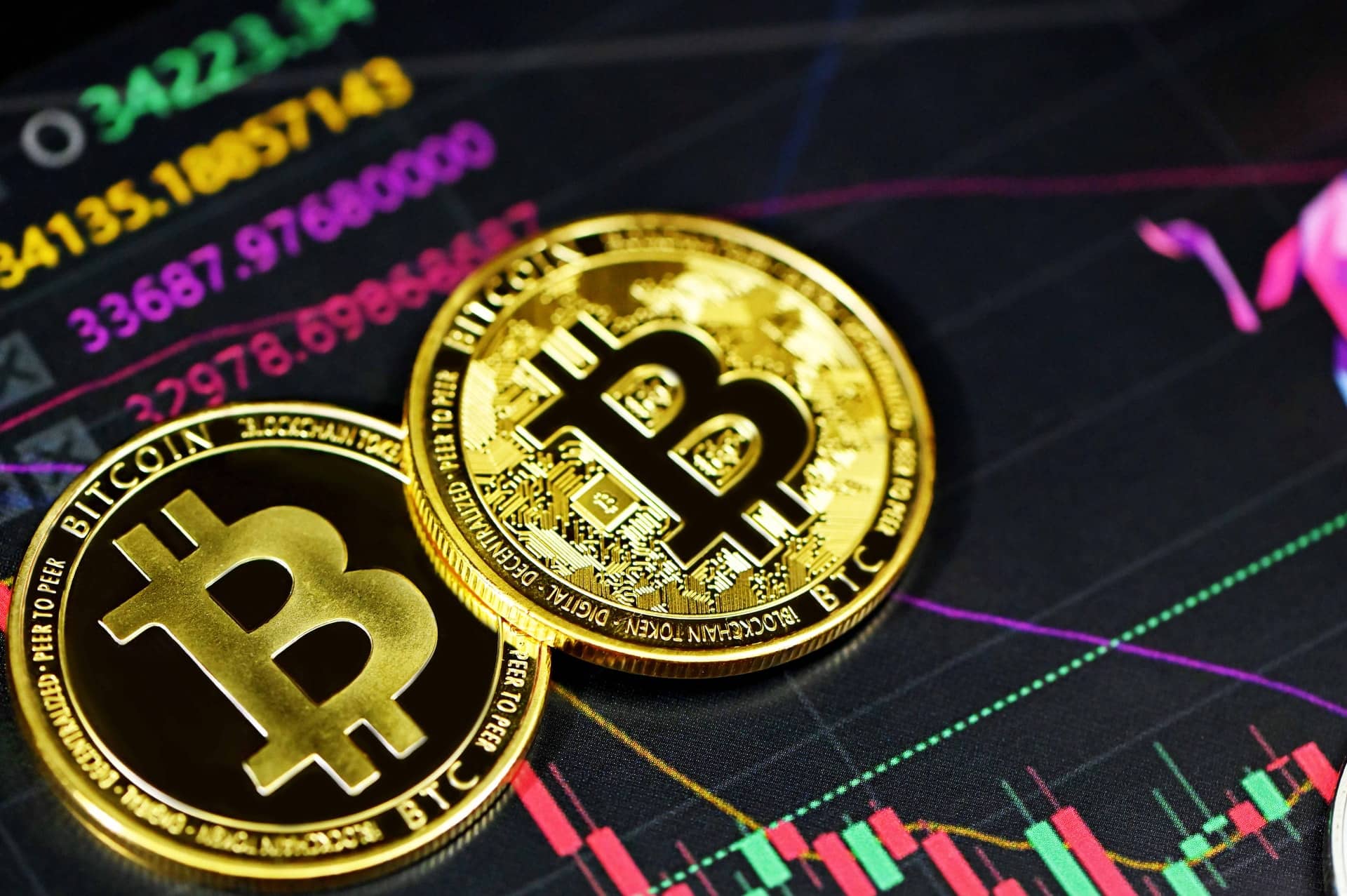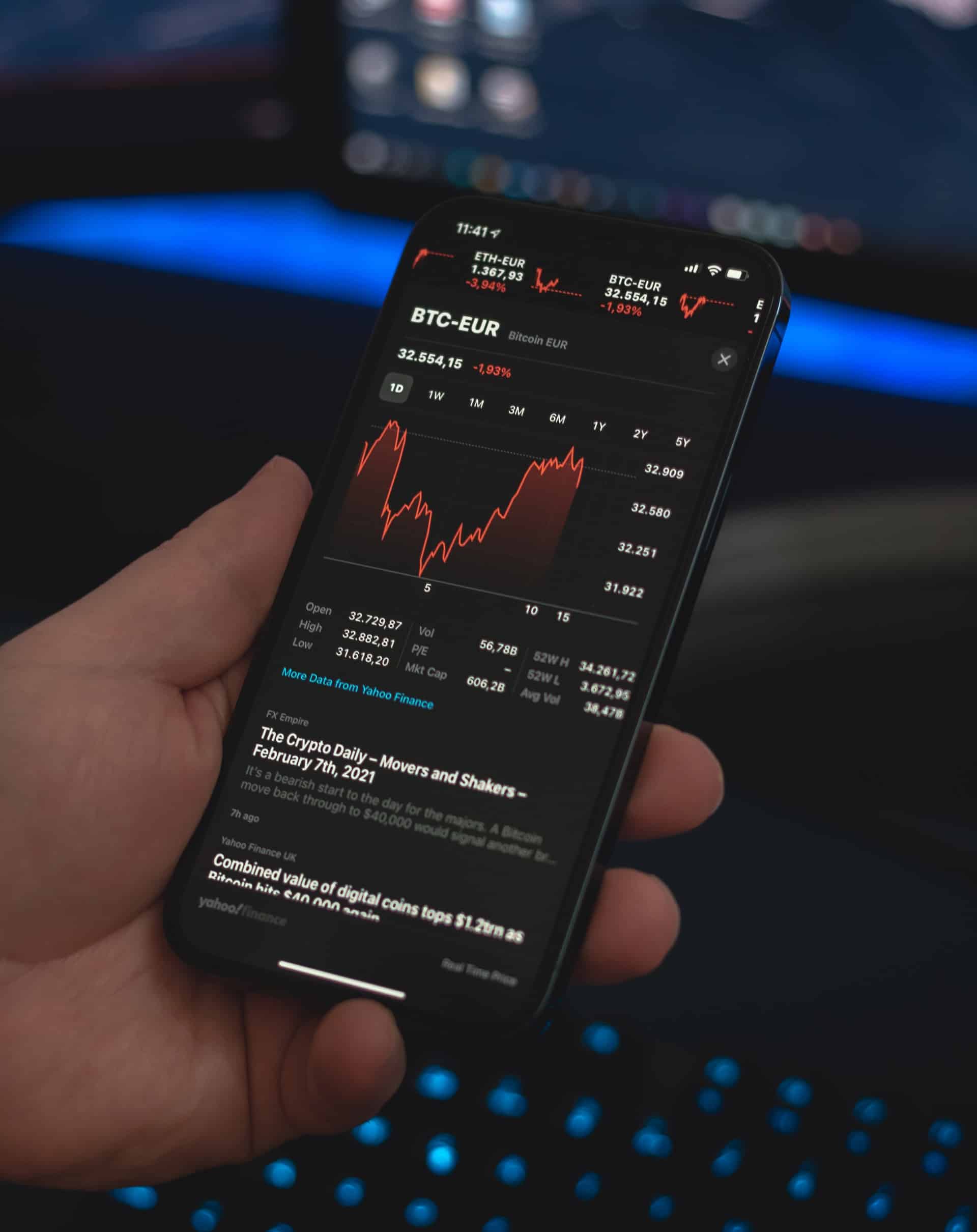We’re in a period of record-breaking inflation, leaving many to rethink their financial plan and how they invest. There are a lot of options for investing during inflationary periods. For example, many people are looking at alternatives like investing in cryptocurrency. Around 23 million entities are estimated to hold just bitcoin currently.
Not everyone can handle a volatile investment like cryptocurrency, and some wonder whether or not it’s a true hedge against inflation. The following are things to know about current inflation, how it affects investment, and how to hedge against inflation.
IMAGE: UNSPLASH
What’s Going On With Inflation?
Inflation, in general, is a sustained increase in the price of goods and services. Inflation is measured as an annual percentage increase, which is reported in the Consumer Price Index or CPI. The U.S. Bureau of Labor Statistics prepares the report each month.
When inflation goes up, your purchasing power goes down. Fixed-asset values are impacted, and companies change the pricing of good sand services. Financial markets also tend to react to inflation, and there’s an impact on the makeup of investment portfolios. When there’s high inflation, it can affect your retirement and your lifestyle.
To put it in even simpler terms, your dollar isn’t going as far right now as it did a year ago.
Some levels of inflation, which are typically steady and low, are healthy for the economy. The Federal Reserve generally describes a 2% inflation rate as being good. When it goes higher, and at a faster rate, it becomes concerning.
We’re in the midst currently of the highest inflation in four decades. It’s hitting nearly every area of life, including the cost of groceries, gas, new cars, rent, and more.
Federal Reserve Governor Christopher Waller told CNBC that the central bank might need to enact one or more 50 basis point interest rate hikes this year to calm inflation. Inflation isn’t measured in the price of one good or service. It’s more of an overall measure of the increase in the cost of living.
It’s a general increase in the price level of the goods and services that make up an economy. The Consumer Price Index is based on the average change in price over time that consumers pay for what’s called a market basket of goods and services.
A wide variety of factors can impact inflation, including supply and demand, as well as monetary policies. Keeping interest rates low and putting a lot of money into financial markets, which the Fed did during the pandemic, are associated with some of the inflation going on right now.
One of the points of investing is so that you can protect yourself against inevitable inflation that occurs over time. If you simply put your savings in an account that earns little or no interest, you’re not going to be able to keep up with long-term inflation, so that money is losing value.
With those things in mind, how can you adjust your investment strategy for high inflation like what we’re currently experiencing?
Move Towards Equities And Away From Cash
The best advice you might get for investing during inflation is to stay invested in equities. If a company is dealing with rising costs, they can offset them by raising their prices. When that company raises its prices, it raises revenue and earnings.
That’s good for the company but also the investor.
If you’re an especially nervous investor as far as inflation, you might want to put more of your portfolio toward equities. Then, if inflation stabilizes or slows, you could take the excess allocation away.
Right now, during this particular period of inflation, unlike what’s often the case, rates on savings aren’t rising. If you stay in the equity market and don’t move into cash, then it gives you the chance to get more returns over time, and that will increase your purchasing power.
Think About Commodities
Commodity prices tend to go up during inflation, so if you hold them during this time, you might benefit from increased demand for the assets. Commodities are products traded in bulk. They might be agricultural products or natural resources. A company that produces them sells them, and they’re then purchased by a company that uses them.
Commodities are a major asset class of investment, but they’re not typically a good choice for an individual investor because they come in bulk.
Businesses, however, rely on them. Commodities can include livestock, lumber, precious metal, fossil fuels, and bulk foods like wheat, soybeans, and corn.
They’re traded on a futures market. In the futures market, people who produce goods and the people who buy them bargain over a payment. The contracts also set a future date when the goods will be delivered.
Most commodities trade on a commodities exchange and two of the more well-known are the Chicago Board of Trade (CBT) and the New York Mercantile Exchange (NYMEX).
As an individual investor, you can invest in commodities through a mutual fund or ETF. You’re buying the right to buy or sell an asset for a period of time in the future. This is different from investing in a traditional mutual fund or ETF because you don’t own a share of the asset itself. It’s a risky investment.
Avoid Fixed-Income, Long-Term Investments
During inflation, one of the worst places to put your money is fixed-rate interest-bearing investments that are long-term. This could include debt securities that pay fixed rates, and you should especially try to avoid ones with maturities of ten years or more.
When interest rates rise, the underlying security’s value falls because investors are trying to go to alternatives with higher yields.
When interest rates and inflation are falling, fixed-income long-term investments are great, however.
What About Bitcoin?
Bitcoin is the most valuable cryptocurrency in the world. Over the past five years, it’s gone up immensely, dwarfing the S&P 500 substantially by comparison. Gold has often been what investors have turned to as a hedge against inflation. The idea is that when consumer prices go up, the cost of a hard asset like gold should go up because the dollar is losing value.
That’s not always the case. There have been periods of high inflation where ownership of gold could have led to negative returns. Bitcoin is similar to gold in terms of scarcity and what has traditionally been a low correlation with other financial assets.
There will be only 21 million bitcoin ever, so the cap on supply means that when demand goes up, so do prices. However, the price moves on speculation currently rather than what inflation does. The best way for bitcoin and crypto in general to become a good hedge against inflation is for the adoption to expand and for crypto to become more mainstream. Then, as volatility decreases, bitcoin could be seen as a more viable gold alternative.
That doesn’t mean there might not be some value to allocating some of your portfolios to crypto, however, as long as you recognize the speculative and volatile nature. The price of bitcoin has gone up enormously over the past five years—much higher than the rate of inflation. If you look at it through this lens, it is an inflation hedge if you consider it over a period of years.
General Inflationary Investment Tips
Along with what’s mentioned above, other things to think about when investing during inflation include the fact that the assets that do best are the ones that are most assured of going up in value or bringing in more cash as inflation increases.
Having a rental property is an example. Rent prices almost always go up with inflation. Even if you don’t want to become a landlord, you can buy shares of a real estate investment trust (REIT) or a specialized fund.
Real estate isn’t perfect during inflation because it is vulnerable to rising interest rates and financial crises. Another option is to invest in bonds. While inflation is detrimental to fixed-rate debt, that’s not the case for inflation-indexed bonds, which have a variable interest rate linked to the inflation rate.
Leveraged loans can be inflation hedges. These are floating-rate instruments. That means that lenders can raise the charged interest rate so that the return on investment is keeping up with inflation.
Overall, if you have concerns about your current investment strategy during inflation, you might need to talk to a financial professional. There are pros and cons to every inflation hedge, as is true of every investment in general.
Your ultimate goal is always to maintain the value of your portfolio but also grow your savings. Spreading your risk is as important to fighting inflation as it is to any other period where you’re investing.
If you have a specific goal or a certain timetable for your investments, don’t veer from those simply because of inflation. If you become too focused on inflation, you might find yourself outside of your comfort zone as far as risk-tolerance. There are no guarantees to anything when you invest.
IMAGE: UNSPLASH
If you are interested in even more business-related articles and information from us here at Bit Rebels, then we have a lot to choose from.


COMMENTS